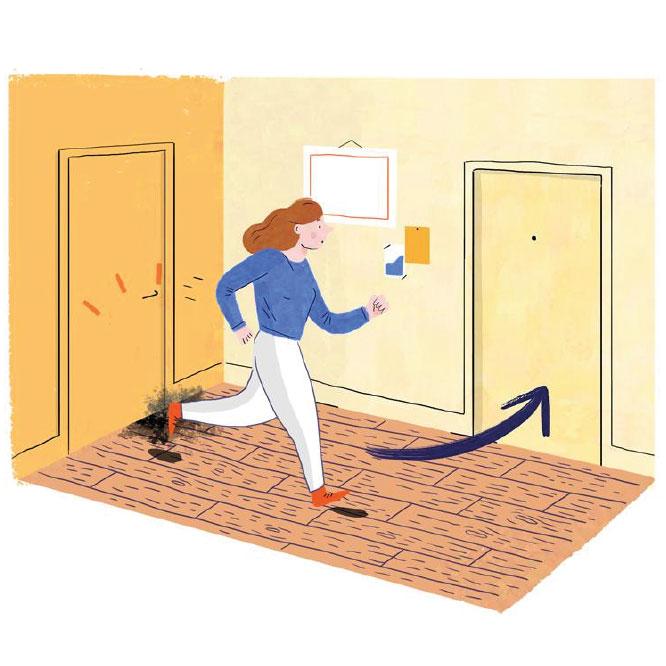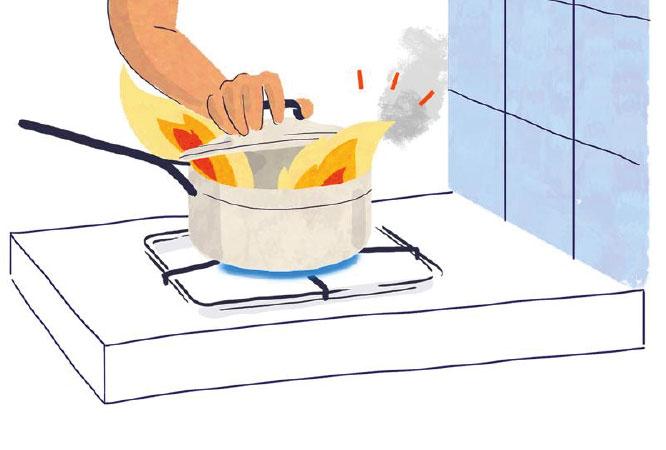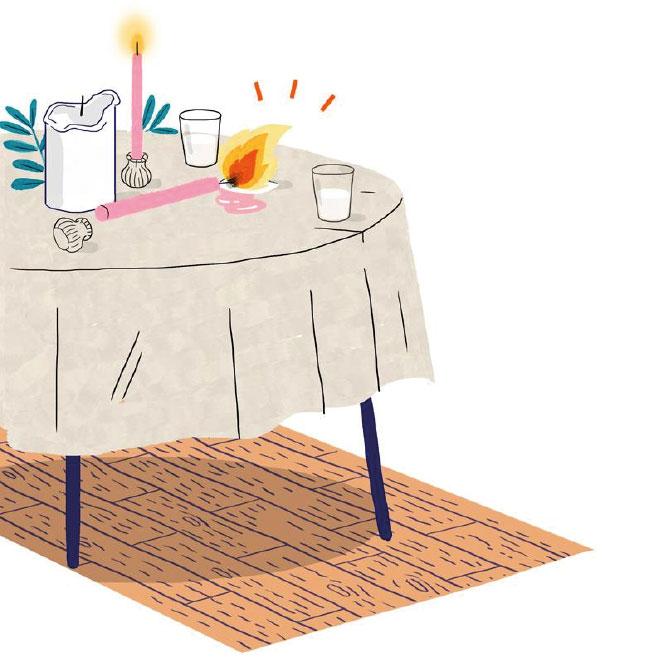At Breakwater Holidays, your safety is our priority.
This guide has up-to-date information and guidance on how to prevent common fire hazards and reduce the impact of an accidental fire — helping to protect your space and your guests.
While these tips are relevant for all Hosts in the UK, you should keep in mind that each nation may have different fire and gas safety regulations and standards. To help you comply with local regulations, check the resources and information at the bottom of this guide.
Carry out a thorough fire risk assessment of your space and document it
Fire safety law requires you to conduct a risk assessment and ensure your property has reasonable fire safety measures in place. This is a practical exercise that involves evaluating fire risks to help ensure the safety of you, and your guests, in the event of fire.
If you have a small property, you may be able to carry out the assessment yourself using a checklist. However, if you don’t feel confident or if you have a larger, or more complex property, you can hire a competent fire risk assessor. More information can be found at your local fire and rescue service’s website.
Install alarms and test them regularly
Working smoke alarms help to make your space safe and provide valuable time to escape a fire. There is a need for interlinked domestic smoke alarms and heat alarms in all areas where a fire might start – such as hallways, corridors, staircases, lounges, dining rooms and bedrooms.
All smoke and heat alarms in the premises should be interlinked so that when any alarm device detects fire, all smoke and heat alarms give an audible sound simultaneously. Interlinking is through wiring or radio signaling. Please check local rules to ensure you are meeting the legal requirements.
Heat alarms should also be installed in kitchens, and in any other risk rooms (such as laundry or utility rooms) where false alarms are more likely to happen due to cooking fumes, steam, dust, etc. Similar systems, based on vibration units and flashing lights, are available to protect people with hearing difficulties.
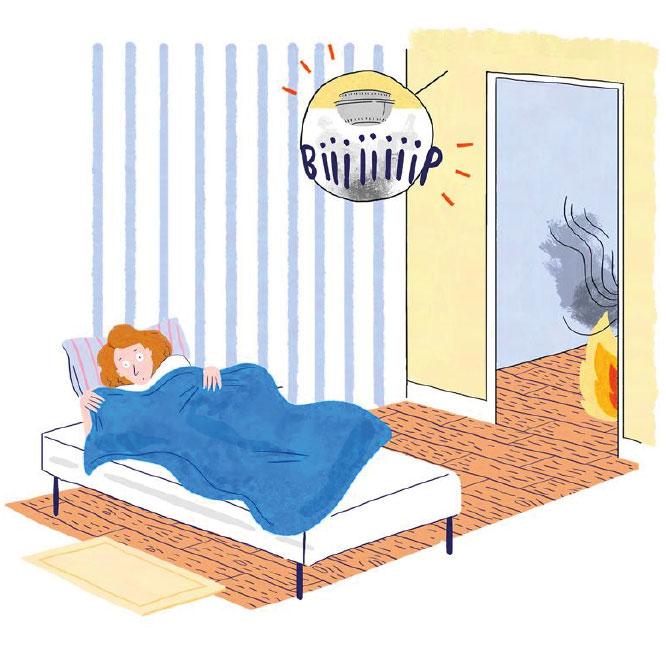
Preferably, all smoke and heat alarms should be mains powered with a tamper-proof standby power supply consisting of a battery. These are technically known as Grade D1 alarms. However, long-life, sealed battery alarms, known as Grade F1 alarms, may be acceptable as a short-term measure (around 2-3 years).
Whatever system you fit should be tested weekly to check it works and is loud enough to wake anyone sleeping. Premises larger than an average family house or flat are likely to need a more sophisticated system – possibly with a control panel and manual call points. A fire risk assessment may demonstrate that a variation to the standards mentioned is needed.
Protect your space against carbon monoxide
Carbon monoxide can be caused by poorly installed or maintained appliances, and this clear, odourless, and toxic gas can be hard to detect without an alarm. It is a legal requirement to install carbon monoxide detectors in any room with a solid fuel burner and ensure your gas appliances are serviced once a year by a Gas Safe registered engineer. If you have a wood or coal burning stove, make sure the chimneys are swept twice a year.
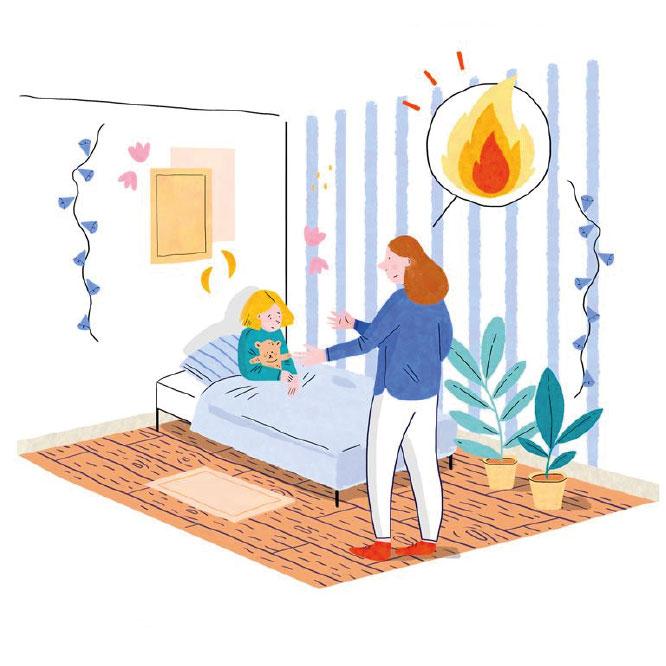
Prevention is key
Always keep flammable items and substances away from sources of heat and ignition — and either locked or high out of the reach of children. Kitchen appliances, like toasters, shouldn’t be used under wall mounted units.
Fires caused by smoking materials result in more deaths than any other type of fire. If smoking is allowed in or around your property, provide safety ashtrays and bins and remind guests to fully and safely extinguish all smoking materials.Candles and tea lights are also a common cause of fires. We recommend not providing candles and prohibiting their use by guests.
Pay attention to electrical items
Routinely check that your electrical appliances and items are working correctly and that all cables and flexes are in good condition. Make sure sockets are not overloaded, and the use of extension leads and adaptors are avoided.
Close doors (especially at night time)
A closed door helps stop fire and smoke spreading, which can help protect your escape route. Make sure you close all doors as part of your night time routine. Doors that are necessary for escape should also be easy to open from the inside.
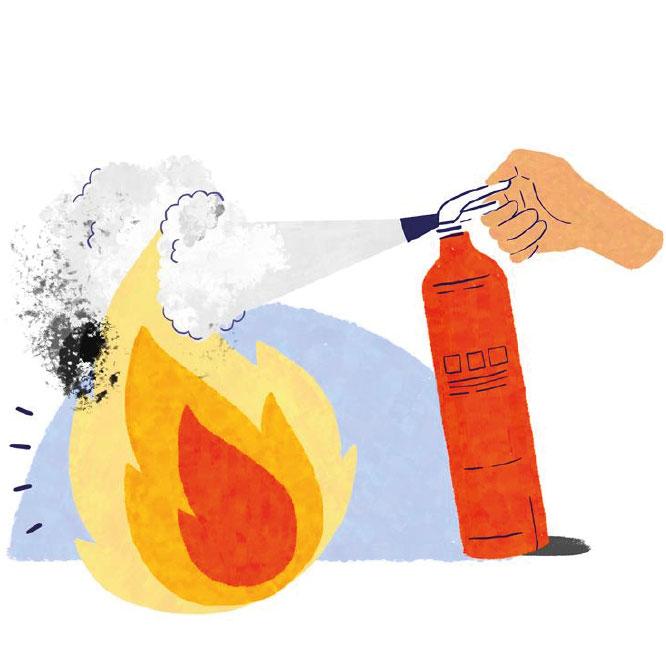
Have an escape plan
Know the escape routes from each room in your home and have a detailed plan for your guests in the event you need to evacuate. Escape routes should be kept clear of any clutter and trip hazards. Ensure the route is well-lit, even in the event of a fire, and be mindful of the wall and door materials.
Make sure the plan is appropriate for everyone who stays with you, especially guests with accessibility issues, and keep a printed copy in your guest handbook.
